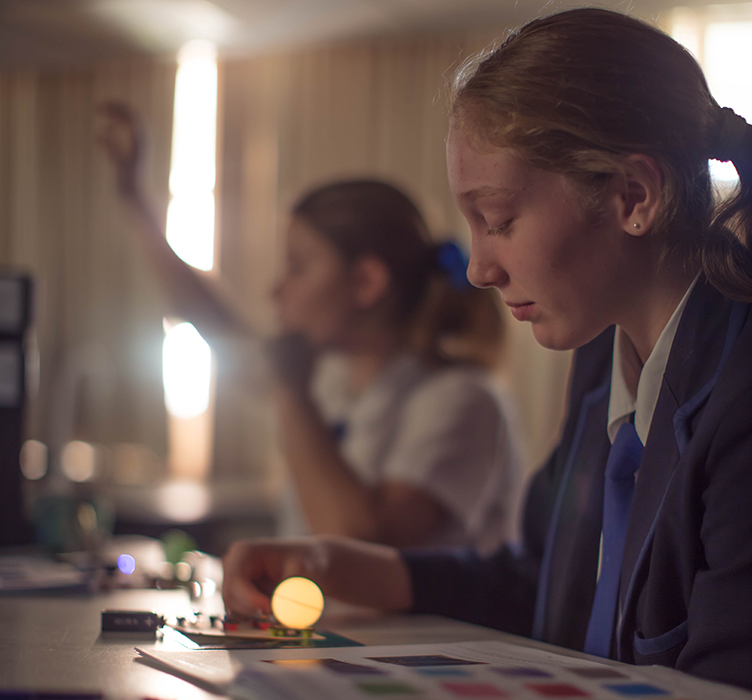‘Lightbulb Moments’ in Year 9 Science
The Science Faculty places high value on interactivity and hands-on learning in the classroom, as it is during these experiences of building, making, and doing in which the abstract scientific concepts discussed in class are made concrete for students. It is often during these hands-on activities that girls experience their best ‘lightbulb moments’—those instances when they combine their knowledge with the physical reality in front of them to create understanding.
To facilitate this in Year 9 Physics, we have been using ‘Circuit Scribe’. These wonderful kits allow the students to make working electrical circuits on paper, by drawing wires with metallic ink and completing their design by adding small, specialised components like batteries, resistors, lights and buzzers.
In the past, students explored circuit construction using long red and black wires (that would often tangle), analogue measuring devices that could be damaged by simple mistakes, and heavy power packs that needed an electrical power point to function. Since these circuits took so long to build, students had to work in groups, which could limit their direct interaction with the equipment.
The kits we use now are small, portable and plentiful. Each student works in their usual seat with their own personal kit, allowing them to customise their circuit and interact with their creation at every stage of the activity. Drawing the circuits takes no time at all, which leaves more time for measuring and experimenting.
Along the way, girls invariably encounter lights that won’t light and buzzers that won’t buzz, but troubleshooting these problems develops persistence and deepens their understanding of the concept being studied. When they finally have that ‘lightbulb moment’ and see their circuit working and feel their efforts have paid off, their pride and happiness create the best possible learning environment—one in which they are having fun.
Miss Gerri Bernard
Science Teacher

Sienna Crosisca (9M)




